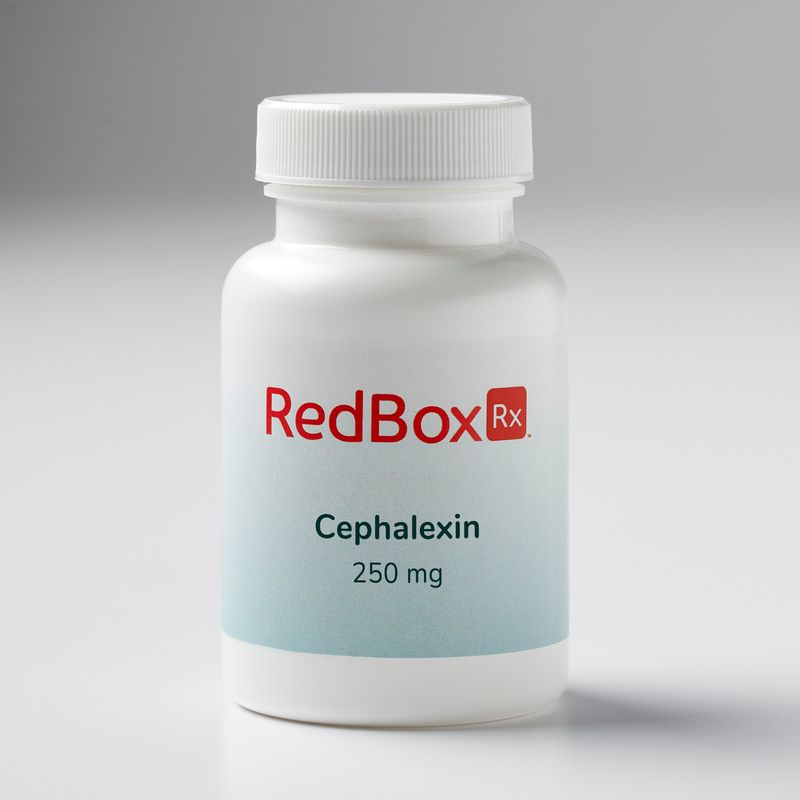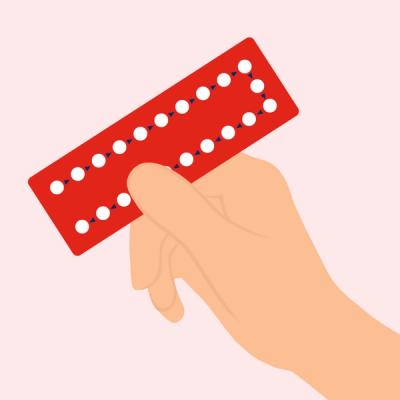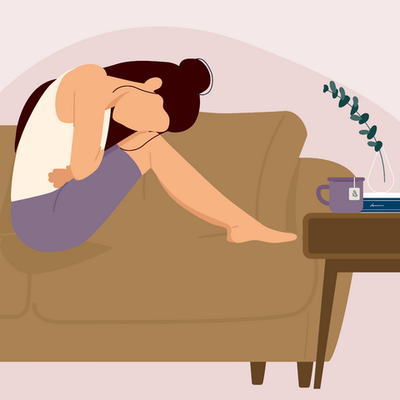Cephalexin for Urinary Tract Infection FAQs
-
Cephalexin is used to treat certain infections caused by bacteria, including urinary tract infections. It belongs to a group of medications called cephalosporin antibiotics and works by killing bacteria.Antibiotics, such as cephalexin, will not work for colds, flu or other viral infections. Using antibiotics when they are not needed increases your risk of getting an infection later that resists antibiotic treatment.
-
Cephalexin comes as a capsule, tablet and suspension (liquid) to take by mouth. You can take it with or without food. If it upsets your stomach, take it with food. It is usually taken every six or 12 hours for seven to 14 days, depending on the condition being treated.Take cephalexin at around the same times every day. Follow the directions on your prescription label carefully, and ask your doctor or pharmacist to explain any part you do not understand. Take cephalexin exactly as directed. Do not take more or less of it, or take it more often than prescribed by your doctor.Continue to take cephalexin until you finish the prescription even if you feel better. If you stop taking cephalexin too soon or skip doses, your infection may not be completely treated and the bacteria may become resistant to antibiotics.
-
You should begin to feel better during the first few days of treatment with cephalexin. If your symptoms do not improve or get worse, call your doctor.
-
Cephalexin is taken every six or 12 hours for seven to 14 days, depending on the condition being treated.
-
Cephalexin is available by prescription only and can be purchased online. Start a low-cost online consultation for urinary tract infection with RedBox Rx to see if cephalexin could be right for you.
-
Cephalexin at RedBox Rx is just $25, one of the lowest prices available online. No insurance required.
-
Before taking cephalexin:
Tell your doctor and pharmacist if you are allergic to cephalexin; other cephalosporin antibiotic such as cefaclor, cefadroxil cefazolin (Ancef, Kefzol), cefdinir, cefditoren (Spectracef), cefepime (Maxipime), cefixime (Suprax), cefotaxime (Claforan), cefotetan, cefoxitin (Mefoxin), cefpodoxime, cefprozil, ceftaroline (Teflaro), ceftazidime (Fortaz, Tazicef, in Avycaz), ceftibuten (Cedax), ceftriaxone (Rocephin) or cefuroxime (Zinacef); penicillin antibiotics or any other medications. Also tell your doctor if you are allergic to any of the ingredients in cephalexin capsules, tablets or suspension. Ask your pharmacist for a list of the ingredients.
Tell your doctor and pharmacist what prescription and nonprescription medications, vitamins, nutritional supplements, and herbal products you are taking or plan to take. Be sure to mention any of the following: anticoagulants (blood thinners) such as warfarin (Coumadin, Jantoven), metformin (Fortamet, Glucophage, Glumetza, Riomet) or probenecid (Probalan). Your doctor may need to change the doses of your medications or monitor you carefully for side effects.
Tell your doctor if you have or have ever had any kind of allergies, gastrointestinal disease (GI; affecting the stomach or intestines), especially colitis (condition that causes swelling in the lining of the colon), or kidney or liver disease.
Tell your doctor if you are pregnant, plan to become pregnant or are breastfeeding. If you become pregnant while taking cephalexin, call your doctor.
-
Unless your doctor tells you otherwise, continue your normal diet.
-
Take the missed dose as soon as you remember it. However, if it is almost time for the next dose, skip the missed dose and continue your regular dosing schedule. Do not take a double dose to make up for a missed one. It is important to finish all prescribed capsules even if you start to feel better before all doses are completed.
-
Cephalexin may cause side effects, including:
Nausea.
Diarrhea.
Vomiting.
Heartburn.
Stomach pain.
Rectal or genital itching.
Dizziness.
Extreme tiredness.
Agitation.
Confusion.
Headache.
Joint pain.
Please contact your doctor if any symptoms are severe or do not go away.
Cephalexin may cause other side effects. Call your doctor if you have any unusual problems while taking this medication.
-
Keep this medication in the container it came in, tightly closed, and out of reach of children. Store the capsules and tablets at room temperature and away from excess heat and moisture (not in the bathroom). Keep liquid medicine in the refrigerator, tightly closed, and dispose of any unused medication after 14 days.It is important to keep all medication out of sight and reach of children, as many containers (such as weekly pill minders and those for eye drops, creams, patches and inhalers) are not child-resistant and young children can open them easily. To protect young children from poisoning, always lock safety caps and immediately place the medication in a safe location — one that is up, and out of their sight and reach.Unneeded medications should be disposed of in special ways to ensure that pets, children and other people cannot consume them. However, you should not flush this medication down the toilet. Instead, the best way to dispose of your medication is through a medicine take-back program. Talk to your pharmacist or contact your local garbage/recycling department to learn about take-back programs in your community.
-
In case of overdose, call the poison control helpline at 1-800-222-1222. If the victim has collapsed, had a seizure, has trouble breathing or can't be awakened, immediately call emergency services at 911.
-
Keep all appointments with your doctor and the laboratory. Your doctor may order certain lab tests to check your response to cephalexin.Before having any laboratory test, tell your doctor and the laboratory personnel that you are taking cephalexin.If you are diabetic and test your urine for sugar, use Clinistix or Tes-Tape (not Clinitest) to test your urine while taking this medication.Do not let anyone else take your medication. Your prescription is probably not refillable.It is important for you to keep a written list of all the prescription and nonprescription (over the counter) medicines you are taking, as well as any products such as vitamins, minerals or other dietary supplements. You should bring this list with you each time you visit a doctor or if you are admitted to a hospital. It is also important information to carry with you in case of emergencies.
-
Keflex®
Biocef®
Daxbia®
Keftab®
-
We offer a variety of prescription medication options for UTIs including:
-
View our telehealth and online pharmacy FAQs here.





